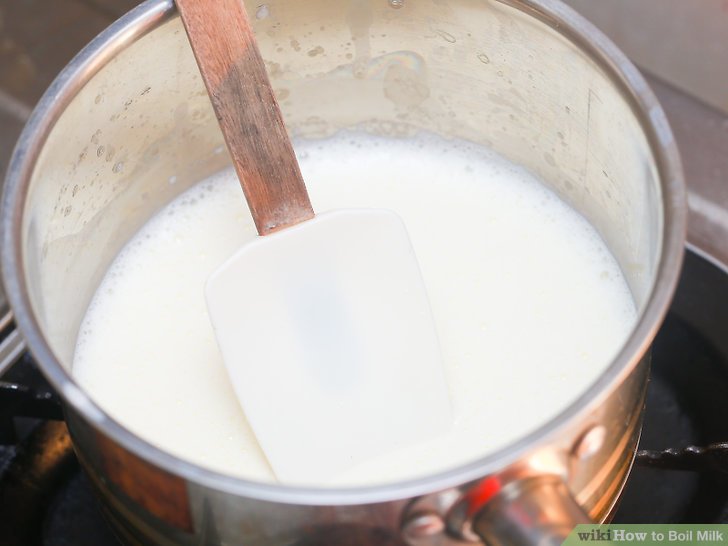The UHT is a type of milk that is germ-free and does not need boiling. It is a product of standardised processes.
Ainsi, Which is better pasteurized or UHT milk? Ultra-pasteurized milk lasts three times longer than HTST processed milk because the higher temperature not only kills the usual suspects like E. Coli and salmonella, but UHT kills all other non-pathogenic bacteria that can cause spoilage, too.
Or, Can you microwave UHT milk?
YES, you can. Whether you are preparing a cup of coffee or heating milk, you can use a microwave without any problem.
What can you make with UHT milk? It is good to use UHT milk in quark and yoghurt because ultra heat-treated milk denatures more proteins than normal milk, which results in better consistency.
With ultra heat (UHT) pasteurised cow’s milk you can make recipes that do not contain rennet such as;
- Mascarpone.
- Yoghurt.
- Ricotta.
- Quark.
Ensuite, Can I use UHT milk for baking?
Have all your ingredients at room temperature
This will help the ingredients to blend together and cook more evenly. That’s why we love UHT milk for baking as you can use it straight from the pantry!
What are the disadvantages of UHT milk?
Disadvantage of UHT milk: 1. Milk quality issues / Alteration of flavor – Complaints include a “cooked” flavor, a stale/oxidized flavor, bitter taste due to peptides generated by heat-stable proteases, or a rancid/acid/sour flavor due to residual bacterial enzyme activity.
Is UHT milk harder to digest?
In other words, it makes the milk protein significantly harder to digest! Look at what happens when milk is ultra-pasteurized at high temperatures versus when it is pasteurized at low temperatures: “Whey protein denaturation plateaued at about 88% following a UHT heat treatment of 149°C for 10 s.
What is the difference between UHT and ultra-pasteurized?
Ultra-pasteurized (UP) milk is heated to a minimum of 280° F and held for 2 seconds, while ultra-high temperature (UHT) milk is heated to temperatures between 275° and 300° F. Both of these methods use commercially sterile equipment to produce a shelf-stable product that does not require refrigeration before opening.
Why did my milk curdle in the microwave?
The problem you are facing is that your microwave temperature is too high and boils your milk too rapidly. The microwave does not heat food evenly and boils the milk too fast. Milk shouldn’t be boiled too rapidly and doing this causes the casein in it to clump together and that curdles the milk.
Why does milk explode in the microwave?
The problem with a microwave oven is that the air is cold, which means that the inside of your cup is not as hot as it could be, and that bubbles can’t easily form along the side walls.
Does boiling milk destroy calcium?
Milk is a vital source for Vitamin D and Vitamin B 12, which help in calcium absorption. Both these vitamins are highly heat sensitive and boiling milk destroys both substantially.
Can yogurt be made from UHT milk?
UHT milk has a bright white colour and a slightly different taste to regular pasteurised milk and is chemical and preservative free, and can be used to make great homemade yogurt in the Luvele range of yogurt makers.
Can I use UHT milk for pancakes?
You can use any liquid and it will be fine (well maybe not vinegar). I doubt you’d be able to taste the difference with UHT milk. UHT is fine in cooking.
Can I make cheese from UHT milk?
Ultra-pasteurized Milk (UP) or ultra-high temperature milk (UHT), is milk heated to 275°F or higher for about one second. Milk that has been ultra-pasteurized does not work well in cheesemaking because the proteins have been destabilized. As a result, the calcium in the milk does not bond properly to make a good curd.
Can you make cheese sauce with UHT milk?
You can use it for any recipe requiring milk. Tastes just fine sometimes a little creamier than regular milk.
Can you make cheese with UHT milk?
Ultra-pasteurized Milk (UP) or ultra-high temperature milk (UHT), is milk heated to 275°F or higher for about one second. Milk that has been ultra-pasteurized does not work well in cheesemaking because the proteins have been destabilized. As a result, the calcium in the milk does not bond properly to make a good curd.
What is the benefit of UHT milk?
UHT milk is a rich source of a number of essential nutrients including calcium, phosphorus, potassium, riboflavin, zinc, vitamins A and B12, magnesium, carbohydrates, and protein. Sterilisation makes milk lighter as once you have treated milk at ambient temperature, the number of microorganisms turns almost zero.
What are 3 advantages of purchasing UHT milk?
Advantages of UHT Milk
- Extended Shelf life. UHT or Ultra Pasteurized milk is known to last much longer than regular milk.
- Less Processing Time. Once pasteurised, the number of microorganisms and enzymes in UHT milk is almost reduced to zero.
- High Nutritional Value.
- Aseptic Packaging.
- High Quality.
- Safer Than Untreated Milk.
Why does supermarket milk last longer?
The process that gives the milk a longer shelf life is called ultrahigh temperature (UHT) processing or treatment, in which milk is heated to 280 degrees Fahrenheit (138 degrees Celsius) for two to four seconds, killing any bacteria in it. Compare that to pasteurization, the standard preservation process.
Can UHT milk cause stomach problems?
But when it comes to health, ultra-pasteurization has a very strong benefit: It makes the product completely safe. Can UHT milk cause diarrhoea? Absolutely not. But raw milk can cause an upset stomach, especially to people who are not used to drinking it.
What is the best UHT milk?
Best long life milk for overall satisfaction: ALDI Farmdale was rated best overall.
Is UHT milk good for coffee?
Ultra Heat-Treated or UHT milk is a very popular shelf stable type of milk that is readily available. However, when it comes to latte art, this type of milk is usually avoided. UHT milk on its own, actually has decent frothing properties and can produce decent body and foam.
What’s wrong with ultra pasteurized milk?
Advantages and disadvantages of UHT milk pasteurization. Ultra-pasteurization significantly lengthens milk’s shelf life. But, it does not taste like regular pasteurized milk and up to 20% less folate, riboflavin, vitamin A, vitamin B12, vitamin C and thiamin.
Why does unopened milk spoil in the refrigerator?
Spoilage of pasteurized milk before its time is most often caused by bacteria that contaminate the milk after the pasteurization process and/or from improper refrigeration. Most dairy processors prevent this type of contamination, though it still occurs at times due to errors at the processing plant.
Why does milk last longer than it used to?
The process that gives the milk a longer shelf life is called ultrahigh temperature (UHT) processing or treatment, in which milk is heated to 280 degrees Fahrenheit (138 degrees Celsius) for two to four seconds, killing any bacteria in it. Compare that to pasteurization, the standard preservation process.


